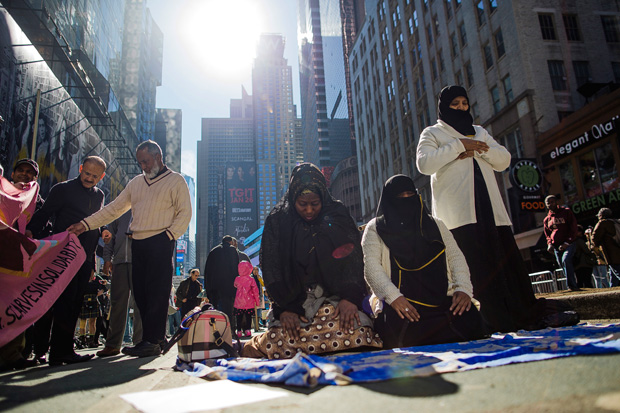BENCH BLOG: In fight over travel ban, court holds trump card (UPDATE)
By: Jean DiMotto//February 20, 2017//
BENCH BLOG: In fight over travel ban, court holds trump card (UPDATE)
By: Jean DiMotto//February 20, 2017//

16 years on the Milwaukee County Circuit bench and now serves as a reserve judge. She also is of counsel with Nistler Law office SC. She can be reached at [email protected].
In a lucid, logically ordered and eminently readable opinion, the U.S. Court of Appeals for the 9th Circuit denied the federal government’s motion for an emergency stay of a temporary restraining order enjoining the enforcement of President Trump’s travel ban.
The ban is contained in Executive Order 13769, “Protecting the Nation from Foreign Terrorist Entry into the United States.” The order was signed on January 27.
“The impact … was immediate and widespread. It was reported that thousands of visas were immediately canceled, hundreds of travelers with such visas were prevented from boarding airplanes bound for the United States or denied entry on arrival, and some travelers were detained.”
The challenge
On the Monday following Trump’s signing of the order, the State of Washington filed suit against Trump and others in the U.S. District Court for the Western District of Washington. In the suit, Washington challenged section 3 and section 5 of the order.
Section 3(c) suspended for 90 days the entry of aliens from seven predominantly Muslim nations: Iran, Iraq, Libya, Somalia, Sudan, Syria and Yemen.
Section 5(a) suspended for 120 days the United States Refugee Admissions Program. Section 5(b) provided that after the 120-day period lapses, the secretary of state is to prioritize refugee petitions based on religious persecution when the petitioner’s religion is a minority religion in the petitioner’s country. Section 5(c) indefinitely suspended entry of all Syrian refugees.
Washington alleged that the order was both unconstitutional under the First and Fifth Amendments and illegal under several federal enactments.
Two days after Washington filed its suit, Minnesota joined it. The two states then jointly filed an emergency motion for a temporary restraining order enjoining the enforcement of the challenged provisions.
District Judge James Robart granted the TRO two days later.
The government responded by filing a motion asking the 9th circuit court for an emergency stay of the TRO.
Lack of standing
The government’s first argument was that the district court lacked subject-matter jurisdiction because the two states had no standing to sue.
To have standing the states had to demonstrate that they had suffered “a concrete and particularized injury that is either actual or imminent” and that was traceable to the governmental defendants and redressable by a favorable court decision.
The states argued that the order adversely affected their public universities. They gave as examples visiting scholars, sponsored prospective employees, and medicine and science interns now unable to enter the U.S., as well as other the effect the restrictions were having on other students and faculty members.
In a per curiam opinion from 9th Circuit Judges William Canby, Richard Clifton and Michelle Friedland, the court rather easily found the states had standing because: (1) the executive order prevents nationals from seven countries from entering Washington and Minnesota; (2) as a result, some of these people will not be able to enter state universities, join their faculties, perform research, or return if they leave; and (3) a favorable court decision would redress these injuries.
Unreviewability
The bolder threshold argument from the government was that a president’s decisions about immigration policy, particularly when motivated by national security concerns, are unreviewable even if unconstitutional. It went so far as to assert that a court cannot entertain such a challenge without violating the separation-of-powers doctrine.
The court forcefully disagreed. “There is no precedent to support this claimed unreviewability, which runs contrary to the fundamental structure of our constitutional democracy.”
It ended its long analysis of the issue with a tidy summation. “In short, although courts owe considerable deference to the President’s policy determinations with respect to immigration and national security, it is beyond question that the federal judiciary retains the authority to adjudicate constitutional challenges to executive action.”
Likelihood of success – Due process
The court next delved into the first prong of the legal standard for deciding whether to grant the government’s request for a stay of the TRO – whether the government had made a strong showing that it would most likely succeed on the merits.
The states’ primary argument was that the ban was unconstitutional under the Fifth Amendment because the affected people were not provided due process, that is, notice of the deprivation and an opportunity to respond.
The government conceded that the ban did not provide for due process. But it argued it didn’t need to since most or all of the individuals affected by the ban have no rights under the Due Process Clause.
Relying on Supreme Court precedent, the court responded that the protections of the Fifth Amendment’s Due Process Clause are not restricted to citizens.
The Clause applies to “all persons within the United States, including aliens, regardless of whether their presence here is lawful, unlawful, temporary or permanent.” It also applies to some aliens trying to re-enter the U.S. after traveling abroad.
The government, for its part, argued that even if it the states can show they will most likely succeed on some of their due process claims, the district court nonetheless erred by issuing an overly broad TRO which applies across the U.S. instead of being limited to the two states.
The court declined to limit the geographic reach of the TRO, though, noting it would be unworkable to do so given “the nation’s multiple ports of entry and interconnected transit system.”
Likelihood of success – Religious discrimination
The states argued that the ban violated the Establishment and Equal Protection Clauses because it was intended to ban Muslims, citing various statements Trump had made about a “Muslim ban.”
The court stated that these claims “raise serious allegations and present significant constitutional questions.” But it declined to analyze them at this procedural juncture, preferring to wait until the appeal was fully briefed.
Commentary
The winners in this case aren’t just the people who have escaped the effects of the ban.
The rule of law also won.
And attorneys now stand in a more esteemed place because it was attorneys who championed the rule of law by bringing the case in the first place.
This case is a functional example of the checks and balances that undergird our constitutional democracy. The decision issued from the judicial branch’s proper exercise of its role vis-à-vis the executive branch in a tripartite government.
A revised order is expected this week. Meanwhile, the TRO remains in effect.
Wisconsin case
A case filed in the U.S. District Court for the Western District of Wisconsin last week in many ways mirrors the constitutional issues in the Washington-Minnesota case.
Here, a Syrian Muslim denominated John Doe was granted asylum last year after being imprisoned, tortured and threatened with death in Syria. His wife and daughter are still in hiding in Syria, fearing rape and murder, and he applied for derivative asylum for them.
His information and belief are that the application was being favorably processed through the U.S.’s vetting systems but the processing stopped abruptly on January 27 [ ] when the executive order – with its indefinite travel ban on all Syrian refugees – was signed.
Similar to the Washington-Minnesota case, the man sued Trump and other government departments, lodging a constitutional challenge under the First and Fifth Amendments, as well as a legal challenge under various federal laws.
He asks for a declaration that the order is unconstitutional and for a permanent injunction enjoining the enforcement of the ban.
District Judge William Conley has fast-tracked the case.
Editor’s note: The version of this column that was originally posted was not complete. It has since been updated.

Legal News
- Pecker says he pledged to be Trump campaign’s ‘eyes and ears’ during 2016 race
- A conservative quest to limit diversity programs gains momentum in states
- Wisconsin prison inmate pleads not guilty to killing cellmate
- Waukesha man sentenced to 30 years for Sex Trafficking
- 12-year-old shot in Milwaukee Wednesday with ‘serious injuries’
- Milwaukee man convicted of laundering proceeds of business email compromise fraud schemes
- Giuliani, Meadows among 18 indicted in Arizona fake electors case
- Some State Bar diversity participants walk away from program
- Wisconsin court issues arrest warrant ‘in error’ for Minocqua Brewing owner
- Iranian nationals charged cyber campaign targeting U.S. Companies
- Facing mostly white juries, are Milwaukee County defendants of color truly judged by their peers?
- Milwaukee Mayor speaks in D.C. Tuesday at White House water summit
WLJ People
- Power 30 Personal Injury Attorneys – Russell Nicolet
- Power 30 Personal Injury Attorneys – Benjamin Nicolet
- Power 30 Personal Injury Attorneys – Dustin T. Woehl
- Power 30 Personal Injury Attorneys – Katherine Metzger
- Power 30 Personal Injury Attorneys – Joseph Ryan
- Power 30 Personal Injury Attorneys – James M. Ryan
- Power 30 Personal Injury Attorneys – Dana Wachs
- Power 30 Personal Injury Attorneys – Mark L. Thomsen
- Power 30 Personal Injury Attorneys – Matthew Lein
- Power 30 Personal Injury Attorneys – Jeffrey A. Pitman
- Power 30 Personal Injury Attorneys – William Pemberton
- Power 30 Personal Injury Attorneys – Howard S. Sicula






